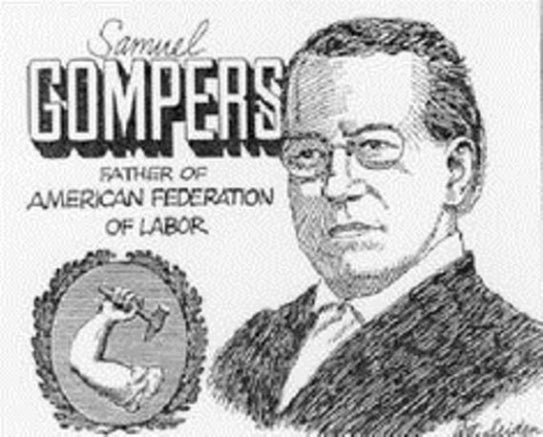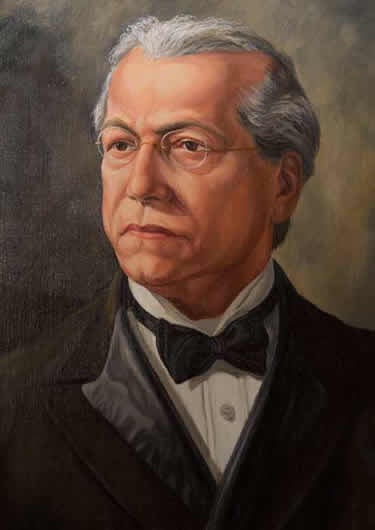Uncategorized
1925: Eulogizing Gompers

Tobin and Gompers had shared a bond, and it’s impossible to understand the Teamsters Union without recognizing Gompers’ impact on the fledgling union. The tribute to his “life-long friend” focused not on his role in labor but his impact on the country, seeking to honor his citizenry. Of all the accomplishments, Tobin, a fellow immigrant and outsider, channeled the patriotism of the labor legend.
Although Gompers failing health at the time of his death, Tobin was still shaken by the death of his close friend and mentor. In January of 1925, less than a month after Gompers’ death, he memorializes the legendary founder of the American Federation of Labor in the International Teamster.
Samuel Gompers
By Daniel J. Tobin
The death of Samuel Gompers, which occurred on December 13, was a great shock to the men who have worked with him for many years and a great loss to the rank and file of the people of our country, for he was not only a friend of the workers, organized or unorganized, but he was also a great American citizen.
 Born in London in the White Chapel district of Dutch-Jewish parents and coming to this country over sixty years ago, his life’s struggle was to uphold, maintain and advance American citizenship and American institutions.
Born in London in the White Chapel district of Dutch-Jewish parents and coming to this country over sixty years ago, his life’s struggle was to uphold, maintain and advance American citizenship and American institutions.
During the war, he demonstrated in this country, as well as England and France, his loyalty to the cause of justice in his support of our government during that crucial period; appealing to the workers of the nation to remain on the job; appealing to the workers of Europe to support their governments and to settle their grievances without suspension of operations; appealing to and strengthening the men at the front during his travels through France. No man of his age could or did render greater service to his country.
Immediately after the ending of the war, with him, as delegates representing the American Federation of Labor, we visited England, France and Holland and the first time we met the German representatives of Labor in the International Convention, Mr. Gompers was just as firm in fighting for the government of our country by trying to prevent the passage of any declaration that might insinuate selfishness on the part of our government in its participation in the war as he was in fighting for the rights of the working men and women in his own country.
I have known him intimately for twenty-five years and have worked alongside him as a member of the Executive Council for many years, and a greater heart or more kindly individual, anxious and willing to forgive even those who misunderstood him, I never met. His greatest quality was in fighting radicalism and the doctrines of dreamers, in which fight he was unsuccessful because he was one of the men who was helpful in keeping the American Federation of Labor from foolish, impossible, hurtful entanglements.
The Labor movement and the workers in general have lost a sincere, life-long friend and worker in their cause and our country has lost one of its greatest citizens.